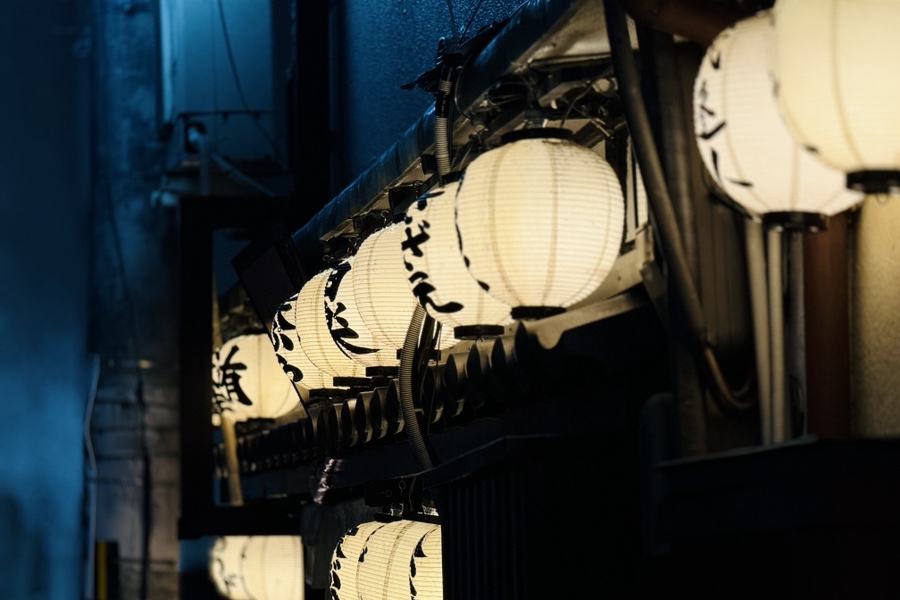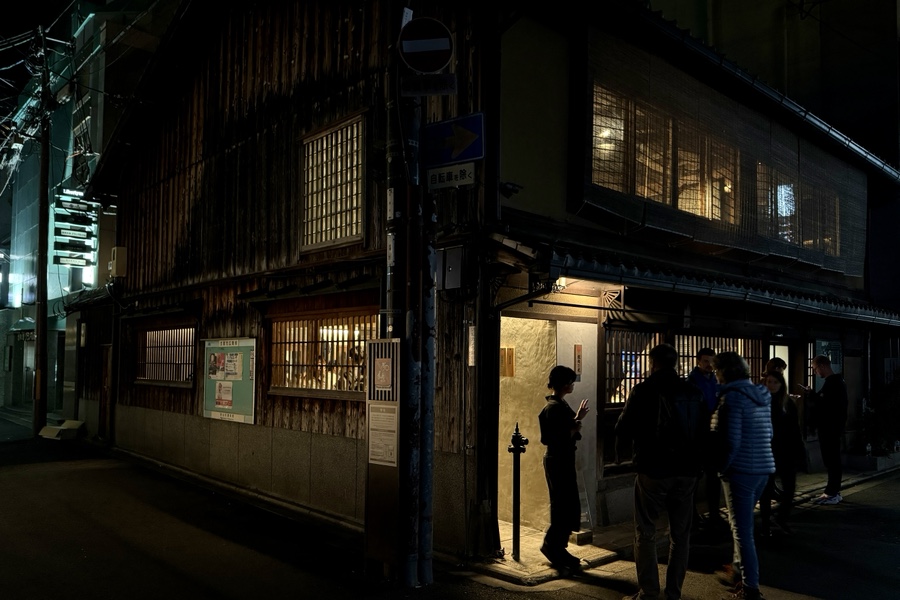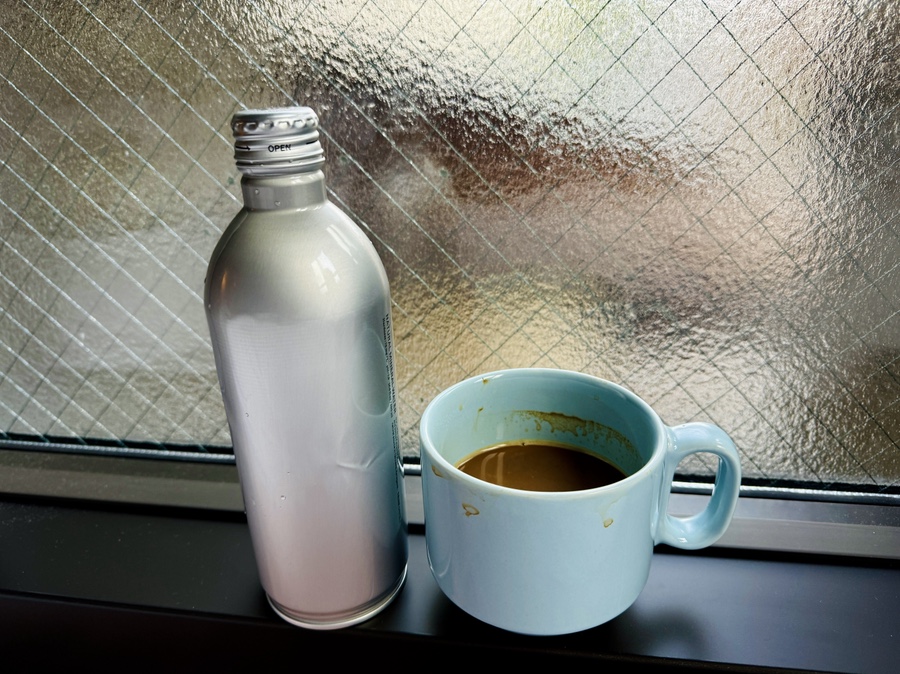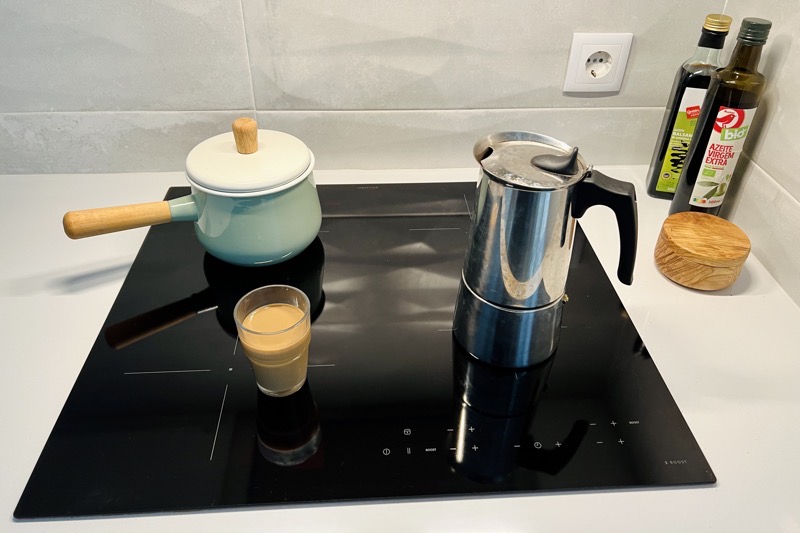02023-11-12 | Food, Rain Music, Travel
Arrived in Kyoto by Shinkansen. It’s the best way to travel. I could go on and on about train travel versus planes but that’s for another time.
Walked around and found a little shop that served udon in dashi broth. I noticed another customer at the bar drinking Sapporo and ordered a bottle for myself. Maybe I was thirsty but my immediate impression was that Sapporo beer brewed in Japan is so much better than what Sapporo makes in North America.
 I love taking photos at night with the iPhone and these small Kyoto streets have lots of great vistas.
I love taking photos at night with the iPhone and these small Kyoto streets have lots of great vistas.  Posted tick tock (blush) to Backstage. It’s the first track on the album Rain Poems and a good entrance into the record. Medium tempo, interlocking rhythm guitars, albeit no strumming—there is no strumming on the entire album, Jon’s upright bass, and water drops that sound like a clock in the chorus. This morning I made coffee using the Blue Bottle instant espresso which I added to a cup of water with milk that I heated up in a microwave. Improvisation! Not a bad cup of coffee at all!
Posted tick tock (blush) to Backstage. It’s the first track on the album Rain Poems and a good entrance into the record. Medium tempo, interlocking rhythm guitars, albeit no strumming—there is no strumming on the entire album, Jon’s upright bass, and water drops that sound like a clock in the chorus. This morning I made coffee using the Blue Bottle instant espresso which I added to a cup of water with milk that I heated up in a microwave. Improvisation! Not a bad cup of coffee at all! 
02022-12-07 | Coffee, Language

from this post on Spoon & Tamago.
02022-07-13 | Coffee, Portugal
“Empurre ou puxe” — which one of those words means push and which one pull? I have noticed a lot of confusion around these two words, especially since “puxe” is pronounced “push-eh”. As you might have guessed “empurre” means push and “puxe” means pull. So, if you stand in front of a door that you are trying to push open and a Portuguese person behind you helpfully says “puxe”, don’t push even harder because they are actually telling you to pull.
The Portuguese have a couple of extra snack meals, which will suit some people I know. :-) There’s one in the late morning, called “lanche da manhã” and one in mid afternoon, “lanche da tarde”. Each meal is usually accompanied by coffee. People drink a lot of coffee here and it is almost always espresso. In Lisbon a café, or espresso, is also called “bica”. Some people think that bica could be an acronym for “Beba Isto Com Açucar” – drink this with sugar – but I don’t believe it. I also learned that in Porto the same coffee is called “cimbalino”. Interestingly bica is feminine while cimbalino is masculine.
“Bico” (masculine) means spout. An espresso machine has little spouts out of which the coffee flows. That could be the origin of “Bica”? That which comes out of the coffee spout…
02022-07-08 | Coffee, HuHeartDrive, Music
I am sitting at my table, next to a fan because we have a heatwave, and am having my morning coffee. I followed Matt’s suggestion (in the comment section of this post) and boiled the water before adding it to the Moka pot. I think the purpose of this may be to make the extraction happen more quickly. What it made me realize is why the original design has those edges. I believe they make the pot more grippy. What I found was that I could not tighten my round pot enough while holding it with a towel and when pressure started to build up vapor escaped where the top and the bottom are screwed together. It is interesting that the designers of newer and stainless Moka pots didn’t figure this out! The coffee was good though and maybe I’ll try again with a silicon hot pad that affords more grip. For now I will switch back to adding room temp water.
Today the second single from “Bare Wood 2” was released on all streaming services and digital outlets. I use UnitedMasters for the digital distribution of my music. For each album or single UM autogenerate what they call a Master Link, which is supposed to make it easy for people to click on the logo of service they subscribe to and listen to the music right away. I guess it is considered too labor and time intensive to use the search function of any streaming service to find the piece. Okay. This is the master link for the new single “Saudade”. You will notice that there is a pop up that declares “I wanna get to know my fans better. Shoot me your info and I’ll add you to my contacts.”
Pause. Well, that’s not something I would ever say, is it. And I can’t figure out whether I can kill the pop-up altogether. It’s the reason I have never used the master link before. I did figure out that I can change the wording of the pop-up – but what should it say? (It’s probably also why I am not good at social media or promotion… most of the tools make me cringe…)
Let me know what you think of the master link. Useful? Bogus? Honestly, I don’t even know where that info goes, should you add your name and email to the pop-up. UnitedMasters database? Go ahead, I dare you! Also cookies… don’t you hate THOSE pop-ups? We don’t use them on this website. However, we will have to use them to make a subscription platform work better… so you don’t have to sign in every time you visit the page.
02022-07-06 | Lx, Photos

One of the first items I aquired for the flat in Lx was a Moka pot. While I love the original Moka pot design, I don’t like heating water in aluminum and besides, an aluminum pot wouldn’t work with this induction stove. Instead I found this stainless steel version at El Corte Ingles.
The original Moka pot was invented by the Italian engineer Alfonso Bialetti in 1933. Some call it a stovetop espresso maker although the pressure never comes close to that of an espresso machine – it creates 1-2 bar of pressure as opposed to 9 bar of a machine. (Wikipedia Link)
I wondered why it’s called a Moka pot and discovered its connection to a city in Yemen.
Wikipedia has the knowledge:
Mocha was the major marketplace for coffee (Coffea arabica) from the 15th century until the early 18th century. Even after other sources of coffee were found, Mocha beans (also called Sanani or Mocha Sanani beans, meaning from Sana’a) continued to be prized for their distinctive flavor—and remain so even today. The coffee itself did not grow in Mocha, but was transported from places inland to the port in Mocha, where it was shipped abroad. Mocha’s coffee legacy is reflected in the name of the mocha latte and the Moka pot coffee maker. In Germany, traditional Turkish coffee is known as Mokka.
 I love taking photos at night with the iPhone and these small Kyoto streets have lots of great vistas.
I love taking photos at night with the iPhone and these small Kyoto streets have lots of great vistas.  Posted tick tock (blush) to Backstage. It’s the first track on the album Rain Poems and a good entrance into the record. Medium tempo, interlocking rhythm guitars, albeit no strumming—there is no strumming on the entire album, Jon’s upright bass, and water drops that sound like a clock in the chorus. This morning I made coffee using the Blue Bottle instant espresso which I added to a cup of water with milk that I heated up in a microwave. Improvisation! Not a bad cup of coffee at all!
Posted tick tock (blush) to Backstage. It’s the first track on the album Rain Poems and a good entrance into the record. Medium tempo, interlocking rhythm guitars, albeit no strumming—there is no strumming on the entire album, Jon’s upright bass, and water drops that sound like a clock in the chorus. This morning I made coffee using the Blue Bottle instant espresso which I added to a cup of water with milk that I heated up in a microwave. Improvisation! Not a bad cup of coffee at all! 




